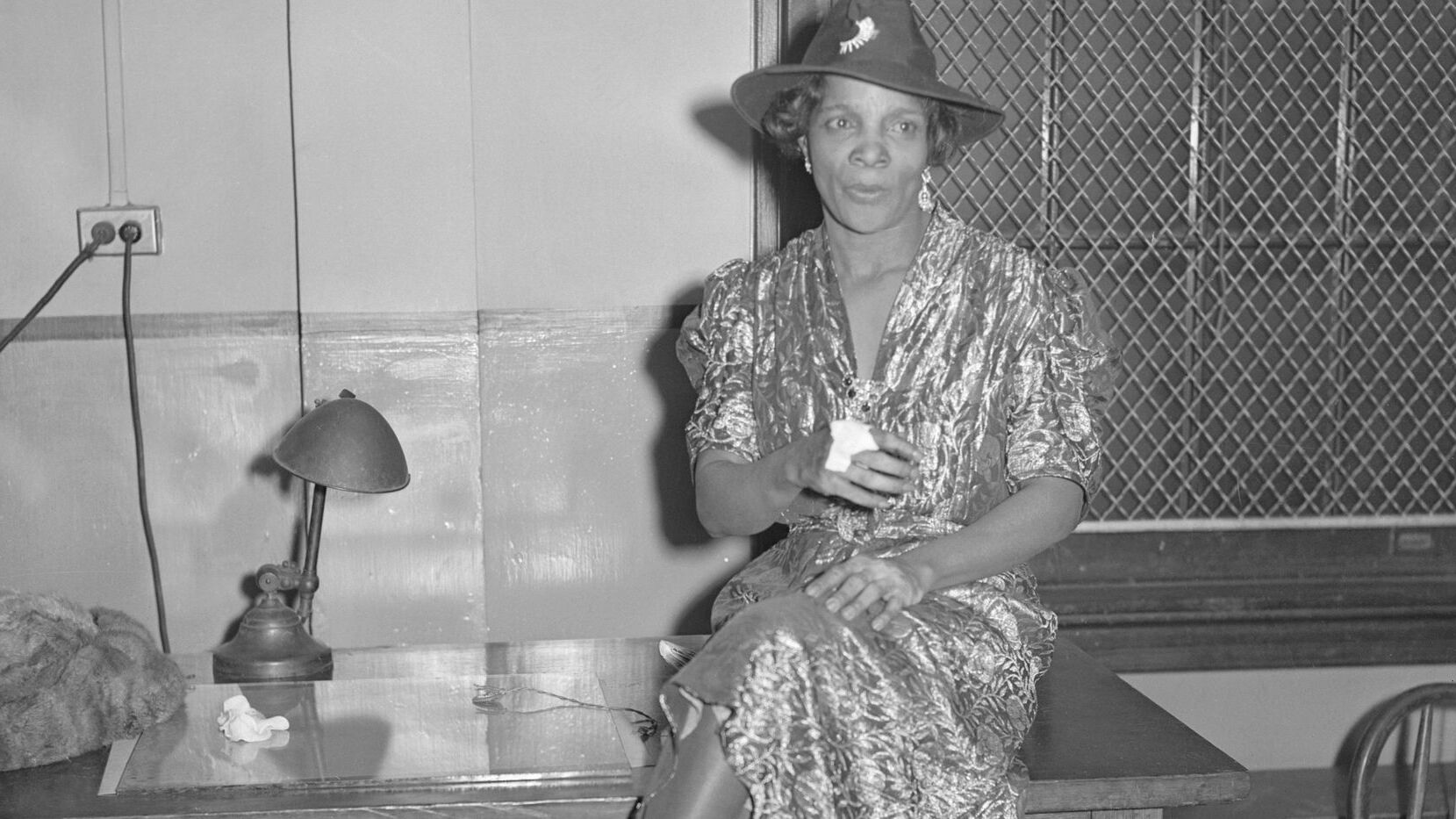
Who was Stephanie St. Clair? Known as "Queenie," Stephanie St. Clair was a trailblazing figure in Harlem during the early 20th century. Born in Martinique, she immigrated to the United States and became a powerful businesswoman and activist. St. Clair ran an illegal numbers racket, amassing significant wealth and influence. She fiercely defended her territory against rival gangs and corrupt police officers. Beyond her criminal endeavors, she was a vocal advocate for the Black community, using her resources to fight for civil rights and against police brutality. Her legacy is a blend of crime, resilience, and activism, making her a fascinating historical figure.
Key Takeaways:
- Stephanie St Clair, also known as "Queenie," was a powerful and influential figure in Harlem during the early 20th century. She was a savvy businesswoman, a passionate activist, and a key player in the numbers game, an illegal lottery popular in African-American communities.
- Despite facing fierce rivalry and challenges, Stephanie St Clair stood her ground with resilience and courage. Her legacy continues to inspire new generations, serving as a symbol of strength and defiance in the face of adversity.
Who Was Stephanie St Clair?
Stephanie St Clair, also known as "Queenie," was a prominent figure in Harlem during the early 20th century. She was a businesswoman, activist, and a key player in the numbers game, an illegal lottery popular in African-American communities.
- Born in 1897 in Guadeloupe, St Clair immigrated to the United States in 1912.
- She quickly established herself in Harlem, New York, becoming a significant figure in the community.
- St Clair was fluent in French and English, which helped her navigate various social circles.
- She was known for her sharp wit and intelligence, often outsmarting her rivals.
- St Clair's nickname, "Queenie," reflected her regal demeanor and commanding presence.
Her Role in the Numbers Game
The numbers game was a form of illegal gambling that was immensely popular in Harlem. St Clair played a crucial role in this underground economy.
- She started her own numbers racket in the 1920s, competing with other prominent figures like Dutch Schultz.
- St Clair's operation was highly organized, employing numerous runners and collectors.
- She used her earnings to invest in legitimate businesses, further solidifying her influence.
- Despite the illegal nature of her business, St Clair was respected for her fair dealings and generosity.
- She often used her wealth to support community projects and help those in need.
Conflict with Dutch Schultz
Dutch Schultz was a notorious gangster who tried to take over the numbers game in Harlem. This led to a fierce rivalry with St Clair.
- St Clair refused to back down, even when Schultz used violence and intimidation.
- She publicly denounced Schultz, taking out ads in newspapers to expose his tactics.
- St Clair's defiance made her a hero in the eyes of many Harlem residents.
- The conflict escalated, leading to several violent confrontations between their respective gangs.
- Despite the danger, St Clair never wavered in her resolve to protect her business and community.
Activism and Advocacy
Beyond her involvement in the numbers game, St Clair was a passionate advocate for civil rights and social justice.
- She used her influence to fight against police corruption and brutality.
- St Clair was an outspoken critic of racial discrimination, often speaking at public events.
- She supported various civil rights organizations, donating money and resources to their causes.
- St Clair also helped fund legal defenses for those wrongfully accused of crimes.
- Her activism extended to women's rights, advocating for greater opportunities and protections for women.
Personal Life and Legacy
St Clair's personal life was as intriguing as her public persona. Her legacy continues to inspire and captivate people today.
- She was married to Sufi Abdul Hamid, a prominent activist and religious leader.
- Their relationship was tumultuous, marked by both passionate love and intense conflict.
- St Clair was known for her lavish lifestyle, often seen wearing expensive clothes and jewelry.
- Despite her wealth, she remained deeply connected to her community, never forgetting her roots.
- St Clair's life has been the subject of numerous books, documentaries, and films.
Later Years and Death
St Clair's later years were marked by both triumphs and challenges. Her death marked the end of an era in Harlem.
- She retired from the numbers game in the 1940s, focusing on her legitimate businesses.
- St Clair continued her activism, though she became less publicly visible.
- She faced several legal challenges, including arrests and trials, but always managed to prevail.
- St Clair's health declined in her later years, leading to a quieter life away from the public eye.
- She passed away in 1969, leaving behind a legacy of resilience, courage, and community service.
Influence on Popular Culture
St Clair's life and legacy have had a lasting impact on popular culture, inspiring various works of art and media.
- She has been portrayed in films and TV shows, often depicted as a powerful and complex character.
- St Clair's story has been the subject of several biographies, exploring different aspects of her life.
- Her influence can be seen in music, with artists referencing her in songs and lyrics.
- St Clair's legacy continues to inspire new generations of activists and entrepreneurs.
- She remains a symbol of strength and defiance in the face of adversity.
Interesting Tidbits
There are many lesser-known facts about St Clair that add depth to her fascinating story.
- She was known for her love of literature, often quoting famous authors in her speeches.
- St Clair had a keen interest in astrology, consulting astrologers for guidance on important decisions.
- She was a skilled chess player, often challenging friends and associates to matches.
- St Clair was an animal lover, particularly fond of cats, which she kept as pets.
- Despite her tough exterior, those close to her described St Clair as kind-hearted and generous.
Stephanie St Clair's Legacy
Stephanie St Clair's life was nothing short of remarkable. From her rise as a powerful figure in Harlem's underworld to her relentless fight for civil rights, she left an indelible mark on history. Her intelligence, courage, and determination made her a force to be reckoned with during a time when society often underestimated women, especially women of color.
Her story isn't just about crime and power; it's about resilience and breaking barriers. She stood up against corruption, advocated for her community, and paved the way for future generations. St Clair's legacy serves as a reminder of the impact one person can have, regardless of the odds stacked against them.
Learning about figures like Stephanie St Clair enriches our understanding of history and inspires us to strive for justice and equality in our own lives. Her story is a testament to the power of perseverance and the importance of standing up for what's right.
Frequently Asked Questions
Was this page helpful?
Our commitment to delivering trustworthy and engaging content is at the heart of what we do. Each fact on our site is contributed by real users like you, bringing a wealth of diverse insights and information. To ensure the highest standards of accuracy and reliability, our dedicated editors meticulously review each submission. This process guarantees that the facts we share are not only fascinating but also credible. Trust in our commitment to quality and authenticity as you explore and learn with us.


